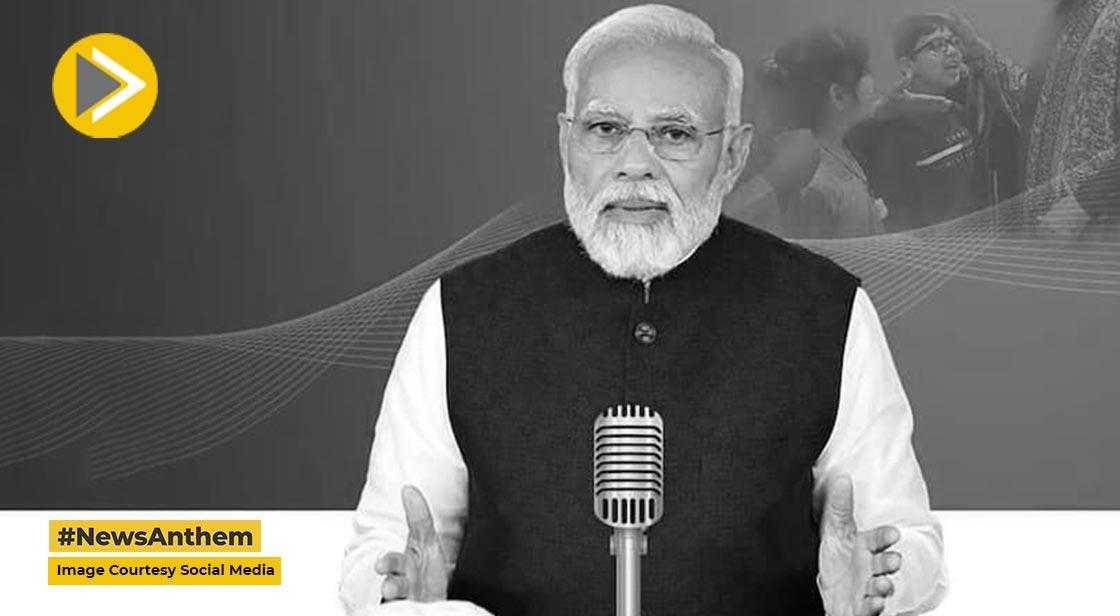Modi-Trump Meeting: India's Possible Concessions in Tariff Negotiations

News Synopsis
Prime Minister Narendra Modi’s upcoming visit to the United States on February 12–13, 2025, is set to focus on trade, defence cooperation, and energy security. The visit is strategically significant as both nations aim to strengthen bilateral ties, enhance economic collaboration, and address key trade concerns.
Key Meetings and Strategic Agenda
PM Modi is scheduled to meet President Donald Trump on February 13, with discussions expected to revolve around reducing import tariffs, increasing defence and energy trade, and tackling long-standing market access issues.
Additionally, Modi will engage with top US business leaders, including Tesla CEO Elon Musk, to discuss investment opportunities, clean energy initiatives, and technological advancements.
The visit gains additional importance as President Trump is set to unveil reciprocal tariffs just before Modi’s arrival, which may influence trade negotiations between the two countries.
Focus on Trade and Tariff Reforms
A significant highlight of the visit will be discussions on bilateral trade and tariff adjustments. India and the US are expected to negotiate the gradual reduction of import duties to enhance market access.
According to Indian Foreign Secretary Vikram Misri, New Delhi anticipates "a more intense and continuing discussion on tariffs" during the meeting. Trump has previously criticized India as "a tremendous tariff maker," pushing for reductions in key sectors.
Addressing concerns over potential US tariffs on Indian exports, Finance and Revenue Secretary Tuhin Kanta Pandey stated, “India is not protectionist, and this apprehension is not warranted.” He further emphasized that India is an open economy, with low import tariffs on 6,000 out of 8,400 tariff lines.
In alignment with US trade interests, India has already reduced customs duties on high-end US imports such as Harley-Davidson motorcycles, Tesla vehicles, and Apple smartphone components. The Union Budget 2025-26 also cut duties on luxury goods and electric vehicle (EV) batteries, making it attractive for Tesla and Apple to expand in the Indian market.
Bilateral Trade and Market Access
India and the US are exploring a limited trade agreement to address market access concerns. In 2023-24, bilateral trade surpassed $118 billion, with India maintaining a trade surplus of $32 billion.
To further ease trade restrictions, India is reviewing tariffs on over 30 items, including luxury cars and solar cells, which could foster stronger economic cooperation between the two nations.
Immigration Policy and H-1B Visa Discussions
Immigration remains a crucial aspect of PM Modi’s visit, with discussions expected on the H-1B visa programme, which is vital for Indian IT professionals.
Trump has previously expressed support for skilled foreign workers, particularly in technology and engineering sectors, making this a key agenda for India.
Additionally, India has taken proactive steps to comply with US deportation policies, repatriating over 100 Indian nationals and addressing illegal immigration concerns. Discussions will focus on streamlining the return of additional Indian migrants facing deportation orders.
Strengthening Defence and Security Collaboration
PM Modi’s visit will reinforce defence cooperation, with India showing interest in purchasing advanced military equipment from the US. Key developments include:
-
India’s purchase of 31 US drones worth $4 billion
-
A global tender for 114 fighter jets, where US companies may play a key role
-
Potential procurement of transport aircraft, infantry vehicles, and reconnaissance aircraft
Defence Secretary Rajesh Kumar Singh highlighted that India is already sourcing a significant portion of its military needs from US firms, and future deals could further deepen defence ties.
Additionally, India has placed an order for aircraft engines from GE Aerospace, reinforcing its commitment to the US defence sector.
Collaboration in Nuclear Energy and Clean Technology
India and the US are expanding their nuclear energy collaboration, particularly in small modular reactors (SMRs).
Recent policy changes in India’s nuclear regulations could attract US companies like GE Hitachi Nuclear Energy, Electricite de France SA, and Westinghouse Electric Co., allowing them to invest in large-scale nuclear power projects.
Strengthening US-India partnerships in advanced nuclear technology will be a key discussion point during Modi’s visit.
Conclusion
PM Modi’s US visit comes at a critical juncture, with discussions on trade, defence, energy, and immigration shaping the future of India-US relations. By negotiating trade reforms, enhancing defence cooperation, and fostering nuclear energy partnerships, both nations are set to strengthen their strategic alliance for the long term.









